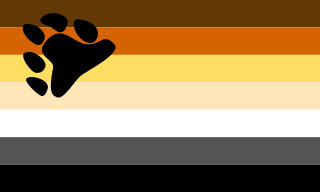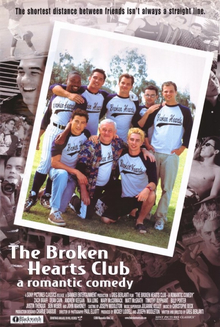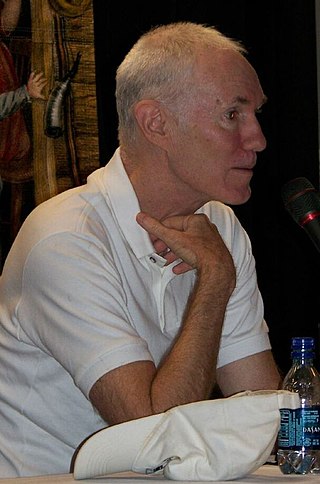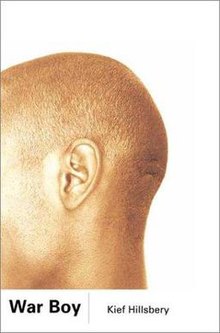
In gay culture, a bear is a man who is fat, hairy, or both.

Records of men who have sex with men in Japan date back to ancient times. Western scholars have identified these as evidence of homosexuality in Japan. Though these relations had existed in Japan for millennia, they became most apparent to scholars during the Tokugawa period. Historical practices identified by scholars as homosexual include shudō (衆道), wakashudō (若衆道) and nanshoku (男色).

LGBT themes in speculative fiction include lesbian, gay, bisexual, or transgender (LGBTQ) themes in science fiction, fantasy, horror fiction and related genres.[a] Such elements may include an LGBT character as the protagonist or a major character, or explorations of sexuality or gender that deviate from the heteronormative.

The Broken Hearts Club: A Romantic Comedy is a 2000 American romantic comedy drama film written and directed by Greg Berlanti. It follows the lives of a group of gay friends in West Hollywood, centered on a restaurant owned by the fatherly Jack and the softball team he sponsors. The friends rely on each other for friendship and support as they search for love, deal with loss, and discover themselves.

David Levithan is an American young adult fiction author and editor. He has written numerous works featuring strong male gay characters, most notably Boy Meets Boy and Naomi and Ely's No Kiss List. Six of Levithan's books have won or been finalists for the Lambda Literary Award for Children's and Young Adult Literature, making him the most celebrated author in the category.

Andrew Holleran is the pseudonym of Eric Garber, an American novelist, essayist, and short story writer, born on the island of Aruba. Most of his adult life has been spent in New York City, Washington, D.C., and a small town in Florida. He was a member of The Violet Quill with Christopher Cox, a gay writer's group that met in 1980 and 1981 and also included Robert Ferro, Edmund White and Felice Picano. Following the critical and financial success of his first novel Dancer from the Dance in 1978, he became a prominent author of post-Stonewall gay literature. Historically protective of his privacy, the author continues to use the pseudonym Andrew Holleran as a writer and public speaker.

Brian A. Kinney is a fictional character from the American/Canadian Showtime television series Queer as Folk, a drama about the lives of a group of gay men and lesbians living in Pittsburgh, Pennsylvania. The character was created by Ron Cowen and Daniel Lipman, who developed, wrote and executive-produced the series, and was portrayed by American actor Gale Harold during the show's five-year run.

LGBTQ themes in horror fiction refers to sexuality in horror fiction that can often focus on LGBTQ+ characters and themes within various forms of media. It may deal with characters who are coded as or who are openly LGBTQ+, or it may deal with themes or plots that are specific to gender and sexual minorities.

In comics, LGBT themes are a relatively new concept, as lesbian, gay, bisexual, and transgender (LGBTQ) themes and characters were historically omitted from the content of comic books and their comic strip predecessors due to anti-gay censorship. LGBT existence was included only via innuendo, subtext and inference. However the practice of hiding LGBT characters in the early part of the twentieth century evolved into open inclusion in the late twentieth and early twenty-first centuries, and comics explored the challenges of coming-out, societal discrimination, and personal and romantic relationships between gay characters.
Gay teen fiction is a subgenre that overlaps with LGBTQ+ literature and young adult literature. This article covers books about gay and bisexual teenage characters who are male.
Gay is a term that primarily refers to a homosexual person or the trait of being homosexual. The term originally meant 'carefree', 'cheerful', or 'bright and showy'.
Thorn Kief Hillsbery is an American novelist. He is the author of War Boy (2000), What We Do Is Secret (2005), which was nominated for a Lambda Literary Award, and Empire Made (2017). He was born in Portland, Oregon, and attended Evergreen State College. His articles about skateboarding, surfing, and rock climbing have appeared in Rolling Stone, Mountain Gazette, and Outside, for which he also served as a contributing editor. He has previously taught a creative writing workshop at Columbia University.
Lesbian portrayal in media is generally in relation to feminism, love and sexual relationships, marriage and parenting. Some writers have stated that lesbians have often been depicted as exploitative and unjustified plot devices. Common representations of lesbians in the media include butch or femme lesbians and lesbian parents. "Butch" lesbian comes from the idea of a lesbian expressing themselves as masculine by dressing masculine, behaving masculinely, or liking things that are deemed masculine, while "femme" lesbian comes from the idea of a lesbian expressing themselves as feminine by dressing feminine, behaving femininely, or liking things that are deemed feminine.
The North American Man/Boy Love Association is a pedophilia and pederasty advocacy organization in the United States. It works to abolish age-of-consent laws criminalizing adult sexual involvement with minors and campaigns for the release of men who have been jailed for sexual contacts with minors that did not involve what it considers coercion.

Gay interpretations have been part of the academic study of the Batman franchise at least since psychiatrist Fredric Wertham asserted in his 1954 book Seduction of the Innocent that "Batman stories are psychologically homosexual". Several characters in the Modern Age Batman comic books are expressly gay, lesbian, or bisexual.

The Kid: What Happened After My Boyfriend and I Decided to Go Get Pregnant is a non-fiction book by Dan Savage. It was first published by Dutton in 1999. The book recounts the author's experiences during the process of adopting a child with his partner, Terry. Savage details for the reader his emotional states at various times during the adoption period and how it affected his life.

10,000 Dresses is a 2008 children's picture book written by Marcus Ewert, illustrated by Rex Ray and published by Seven Stories Press. It is about a young transgender girl named Bailey who dreams of wearing extravagant dresses. When she comes to her parents for help, they are not particularly accepting, but she eventually meets a friend inspired by her courage who is willing to help her out. The book is notable for being one of the first children's books depicting transgender people's experiences.

Neverland, full title Neverland: Never Grow Up, Never Grow Old, is a 2003 indie film by director Damion Dietz with New Media Entertainment and is a dark and surreal modern re-imagining of the classic of Peter Pan and other characters in J. M. Barrie's 1904 play Peter Pan; or, the Boy Who Wouldn't Grow Up and 1911 novel Peter and Wendy.












